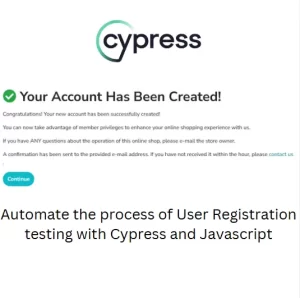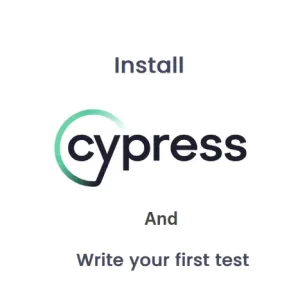How To Ask Good Questions In Meetings? – The QA Guide
Lately there is a lot of talk about prompting various AI tools to help you with problem solving. I know for a fact that many software developers and QA engineers have problem with asking questions. They cannot formulate the question properly, sometimes they do not understand the problem correctly, at some points they are not interested to ask questions. Writing prompts for AI is the same as asking questions. I have a simple question: how will you write a complex prompt to AI tool if you cannot do the same during in person communication? Asking questions is an art. It is especially useful if your team is doing BDD. We all know that with Shift Left we have to ask questions early in the development process. So how can we ask good questions in meetings?
Focus
When I say focus I mean listen to the people around you. And by listening I mean use your brain to process the information you hear. When you actively listen to someone, not only you hear words, but also see the mimics, hand gestures, body language. Focus on each of these things and process them. Think about the words the speaker is saying. If you have to, write things down. What makes you uncomfortable with the words you hear? Is there something that you would do differently if you would swap roles?

In writing we have 5W technique which should give you enough information to start with. They are: Who, What, Where, When and Why. If the speaker hasn’t answered all of them take a note of it to ask later. In software development it is really important to know answers to these questions. If we were about to build a solution to some problem clients have we better know who are our customers, what are they doing, when they have this problem, where is the problem noticeable and why is it important to solve it. Now when you know what to focus on, you need to solve the number 1 problem to make this work.
The Fear
No matter how many times we hear “there are no stupid questions” we are always afraid to ask. No one wants to look bad in front of their teammates. On the other hand we all want to look smart, have authority and to be respectable parts of the team. If you want to become all of that you need to build your knowledge about the domain industry you are working in and to build technical knowledge about the solution you are building. Now, here is the funny part – you can do all that only if you ask questions. In order to move ahead you have to get rid of your fear of asking questions.
Fear is archaic and blocking feeling which used to help people survive the dangerous moments. To remove that block, you have to practice. I’m not a psychologist but I can tell you that you are thinking about your fear irrationally. You think something bad will happen if you ask the wrong question. People will think bad about you if you ask the wrong question. You have to realize that nothing bad will happen and other people’s opinion does not diminish your value as a person. Simply their opinion does not change who you are. Read the last two sentences few more times and then jump to the next section.
Systematization
Now, when we finished discussing the irrational part of your persona let’s deal with our main topic – how to ask good questions in meetings? Of course, we focus mainly on meetings as development teams work together. The questions depend on the context. It is very important to know your audience. In certain cases, some introduction before the question might be needed. You might want to ask for help with some programming task, but person who you are asking might not be working on the same project like you. In this case, this colleague might have programming experience to help you but not enough information about the project to provide the proper assistance. To conclude, you need to prepare before asking the question if the occasion allows it.
Go through the written documents to gather some information about the software and think about the possible unknowns you could ask questions about. It is not only about clarification of things you do not understand. Think about impact, risk and priorities and also write down some of the questions.
Formulation
Make sure that you understand what you want to ask. Also, formulate the question in your mind before asking. This is specifically important when you need to ask someone who you don’t know, for example some colleague you haven’t worked with before. Use the language appropriate to your audience. Avoid technical jargon if you talk to non-technical people. If you saved the question for later and decided to try something on your own to figure it out by yourself, good for you. Just remember not to waste too much time on it before asking someone else.
To properly formulate the question you need to provide as much details about it. If you have some rationale behind the question you can start with it. For example you want to ask the business analyst about the performance expectations of new item search feature on e-commerce platform. How about asking, “In earlier meetings someone has mentioned that the current website has 10000 visitors a day, do we know how many of them are likely to use the search feature?”. I could have asked directly “how many users do we expect to use this search” but instead I decided to show my knowledge about the system which would help formulate a better question.

It is the same when you ask someone for help with something. Again, you should start the formulation by what is the problem you are facing and then continue with what you have tried, where did you find the resources that you already used, what were the outcomes of your actions.
There is a small psychological hack when building a rapport with someone. A Benjamin Franklin Effect says that people will like you better if you ask them to do you a favor. So, if you are afraid to ask someone for a help you can start your sentence with “could you please do me a favor” and according to the psychology they will not think bad about you, quite the opposite. Be very careful not to overuse it. There is a fine line between creating psychological safety for yourself and manipulation.
Conclusion
The benefits of knowing how to ask good questions in meetings can be viewed from personal and organizational point of view. From organizational standpoint, by asking good questions you are shifting the testing process to the left and you build the quality into the software. Finding issues early in the development process is costing your organization less money. From personal perspective, you can build authority in your company. People will recognize you as a systematic thinker and valuable asset of their team. In case you have to look for another job, having the ability to ask good questions will definitely be noticed during the interviews.





